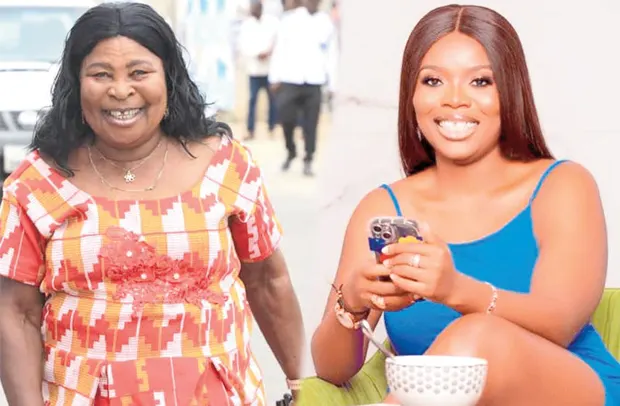The unexpected passing of Akua Donkor, a prominent Ghanaian politician and founder of the Ghana Freedom Party (GFP), on October 28, 2024, has sent shockwaves through both the political landscape and social media. Fellow politicians and citizens alike were anticipating her participation in the upcoming 2024 presidential election as a significant third candidate. Donkor was known for her strong advocacy for farmers and women’s rights, and her sudden demise raises poignant questions not only about her political legacy but also about her personal relationships, particularly a well-documented feud with media personality Deloris Frimpong Manso, widely referred to as Delay.
The tension between Akua Donkor and Delay stems from an incident that took place on The Delay Show, where Donkor felt belittled and insulted by Delay’s comments. In a candid interview with Agyenkwa FM prior to her death, she recounted her humiliation during the appearance, which ultimately led her to curse Delay with poignant words that struck a personal chord. Donkor’s curse included strong statements, implying that Delay would face lifelong hardships in relationships and motherhood. This dramatic turn of events sparked renewed interest in their rivalry, especially following Donkor’s passing.
On social media, users have been debating the possibility of reconciliation between the two women before Donkor’s death, questioning whether she would have lifted the curse that loomed heavy over Delay. While some fans speculate that the two may have resolved their differences privately, others assert that the animosity remained unresolved up to Donkor’s final days. The public’s fascination with this feud has only intensified following her unexpected death, adding a layer of intrigue to her already complex character and political narrative.
Akua Donkor’s passing raises significant questions about her legacy and the potential impact of her unresolved issues with Delay on broader societal perceptions. As a fierce advocate for grassroots communities, particularly farmers and women, her reputation as a politician who was unafraid to speak her mind has led many to wonder how her parting words will be interpreted in light of her rivalry with Delay. The discussion online suggests that her legacy may be partially defined by this feud, adding complexity to her role in Ghanaian politics and society.
Moreover, the situation sheds light on how personal relationships and conflicts can overshadow even the most significant political ambitions. The interplay between Donkor’s advocacy work and her public persona as a contentious figure lends itself to a broader conversation about the nature of media portrayals in politics. The legacy of Akua Donkor, marked by her strong personality and fierce dedication to her causes, may ultimately be viewed through the lens of her dramatic public battles, including the one with Delay.
In conclusion, Akua Donkor’s untimely death left behind a multitude of questions and ongoing discussions regarding the potency of human relationships in the political sphere. As conversations continue to swirl online about her legacy, the unresolved tension between her and Delay becomes more than just personal—it reflects on the very fabric of political discourse in Ghana. While Akua Donkor’s political ambitions and advocacy for marginalized groups remain significant, the intrigue surrounding her feud with Delay adds a captivating narrative, ensuring her story will endure in public memory long after her passing.














